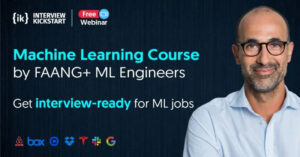AlphaQubit: Google DeepMind’s Groundbreaking Advancements in Quantum Computing

Advancements in Quantum Computing: The Breakthrough of AlphaQubit
Quantum computing has long been recognized as a revolutionary technology, capable of solving problems that are impossible for traditional computers. Recently, researchers from Google DeepMind and Google Quantum AI made significant progress in this field with the introduction of AlphaQubit, an AI-driven decoder that enhances quantum error correction systems.
The Role of AlphaQubit in Quantum Error Correction
In their groundbreaking study published in Nature, the team demonstrated that AlphaQubit can significantly improve the accuracy of quantum error correction, a crucial area that has historically posed challenges for quantum computing. They pointed out that machine learning could surpass human-designed algorithms by learning directly from empirical data. This approach positions AlphaQubit as a robust solution for decoding tasks in quantum systems.
Understanding Quantum Computing
At its essence, quantum computing leverages principles like superposition and entanglement to conduct calculations. This paradigm shift allows quantum computers to tackle intricate problems much faster than classical computers, with applications ranging from cryptography to healthcare and materials science. Some significant areas where quantum computing can make a difference include:
Cryptography: Traditional encryption methods may become obsolete with the advent of quantum algorithms. For instance, Shor’s algorithm can efficiently factor large numbers, challenging current cryptographic frameworks.
Healthcare: Simulating molecular interactions precisely could accelerate drug discovery and personalized medicine, potentially leading to advancements in treatments.
- Materials Science: Quantum computing may enable the development of more efficient batteries and improved materials, paving the way for innovative technologies in energy and transportation.
The Importance of Error Correction
For quantum computers to perform reliably, effective error correction is essential. Quantum bits, or qubits, are sensitive to disturbances from their environment, leading to errors that must be corrected. This correction process is different from classical error correction because errors can appear in more complex and intertwined patterns.
Current Challenges in Error Correction
The study emphasizes the need to lower logical error rates significantly, aiming for about one error for every trillion operations. Current quantum systems operate at error rates that are thousands of times higher. This gap makes advanced error correction a pressing issue in quantum technology development.
The Innovations of AlphaQubit
AlphaQubit represents a significant leap in addressing these error correction challenges. It uses a transformer-based recurrent neural network, enabling it to decode quantum errors with an accuracy that traditional methods struggle to achieve. Instead of depending on static noise models, AlphaQubit learns from real-world data, adapting to complex error patterns.
Two-Stage Development Process
The development of AlphaQubit involved a two-stage approach:
Pretraining: The neural network was initially trained on synthetic data that simulated quantum hardware noise patterns.
- Refinement: It was then fine-tuned using real data from Google’s Sycamore quantum processor.
This combination enabled AlphaQubit to outperform existing decoders on both simulated and real datasets, proving more effective than traditional algorithms like minimum-weight perfect matching (MWPM).
Performance Insights
When tested on the Sycamore processor using surface codes, AlphaQubit showed remarkable results. Its ability to reduce logical error rates far surpassed that of existing decoders, maintaining an edge even in scenarios with significant noise and interference. The decoder also demonstrated adaptability, effectively tackling tasks outside its initial training scope.
Enhanced Accuracy with Soft Information
Moreover, AlphaQubit incorporates “soft” information to enhance accuracy. Unlike traditional methods that use binary inputs, which can miss critical error details, AlphaQubit takes into account the likelihood of various errors, providing a more nuanced understanding of the data.
Future Implications and Challenges
The advancements from AlphaQubit could profoundly influence the quantum computing industry. Systems that can function reliably and efficiently while performing complex computations may bring us closer to the reality of scalable quantum computing.
However, challenges remain. The approach will need further development to scale up effectively and meet the high-speed demands of practical applications. As quantum computing evolves, researchers will have to explore ways to enhance the training processes for AI-based decoders, ensuring they remain efficient as the technology progresses.
The introduction of AlphaQubit signals a pivotal moment in the intersection of AI and quantum physics, potentially reshaping how we address the critical challenges in quantum technology.






